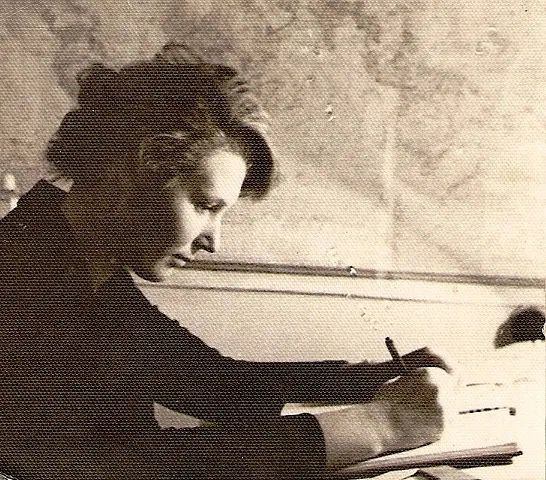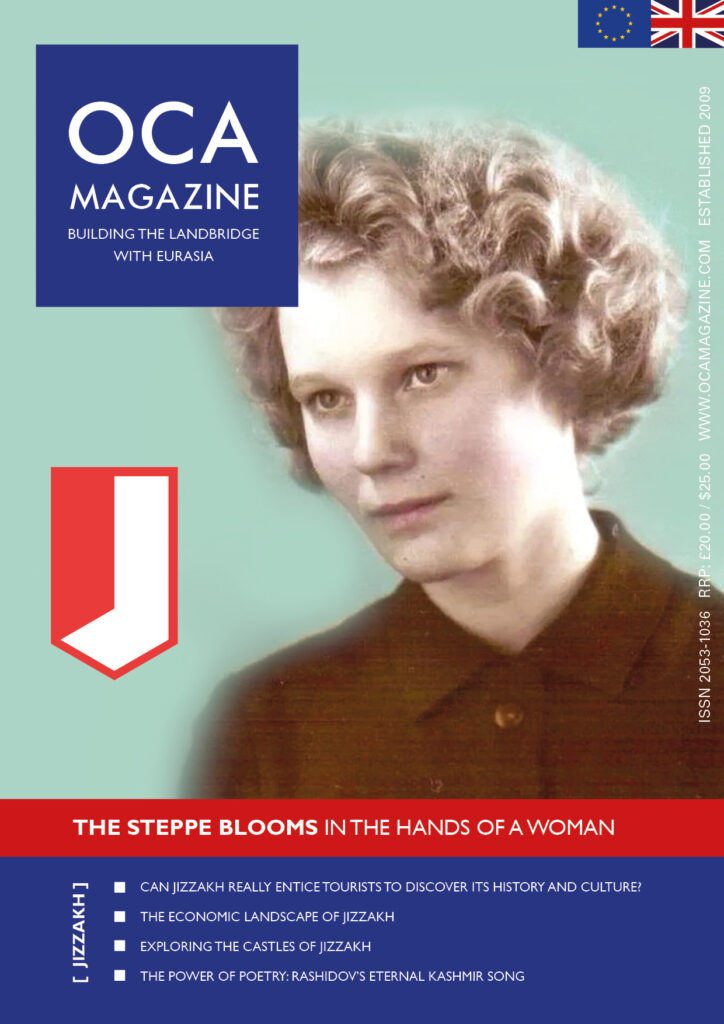THE STEPPE BLOOMS IN THE HANDS OF A WOMAN
The history of the world is made up of unique people, whose lives and destinies differ from the canons of their historical epoch. And the destiny of a unique woman, who went from being a Christian Ukrainian to becoming a heroine of the Uzbek SSR, who converted to Islam and left an astonishing legacy thanks to her “unfeminine” profession, is woven into the era of the development of the Hungry Steppe.
Maria Ivanovna Akhmedjanova (née Shevel) was born on 1 May 1943 in the village of Gritsenovka, Sumy Region, Ukraine. After the war, the family moved to the Tula region, where Maria spent her childhood and youth. The talented girl graduated with honours from the Faculty of Engineering and Construction at the Tula Polytechnic Institute. The rapid pace of construction under the permanent ‘five-year plan’ became a powerful force that changed her life. While studying at the institute, Maria took part in the construction of the Toktogul hydroelectric power station in Kyrgyzstan: the dam, built in a narrow gorge, is considered one of the highest in the world and its unique design creates the famous Toktogul reservoir, the largest in Central Asia.
After receiving a degree with outstanding academic achievements, Maria was sent on a mission to Uzbekistan. There, in 1965, she joined the Jizzakh factory of reinforced concrete products. It was there that she met her future husband, Ismail Akhmedjanov, who made Uzbekistan a second home for her. During their marriage, she gave birth to five children and was awarded the Motherhood Medal. Each of her children turned out well, and 15 grandchildren keep her memory alive.
Maria Akhmedjanova proved herself to be a professional and was soon offered the opportunity to join JizzakhStroy, a general contracting company that was responsible for almost all the major buildings in Jizzakh Region. It was to this organisation that Maria devoted 33 years of her life, becoming first a senior and then a chief engineer.

Maria Akhmedjanova’s main task was to transform the blueprints of faceless standard boxes sent from St Petersburg and Moscow into buildings with a national flavour that not only reflected the identity of Uzbekistan, but also adapted to the complex seismological environment. Under Maria’s sensitive architectural and construction supervision, buildings such as the Khokimiyat (Government) of the Jizzakh Region, the Regional Musical Drama Theatre, the Pedagogical University and the Hotel Uzbekistan were built, while the Zaamin Sanatorium building is still a ‘calling card’ for the region. All these buildings are still in use today.
Maria Akhmedjanova’s high level of professionalism and responsibility, as well as her outstanding human qualities, have enabled her not only to progress in her career, but also to earn the deep respect of her colleagues, superiors and neighbors. She has worked under the direct supervision of Sharof Rashidov and met him personally many times and has received a number of state awards from him: Hero of Labour, Veteran of Labour, Medal of Motherhood and many others state awards.
In the 1990s, when many citizens of the former USSR returned to their home countries in the wave of independence, Maria Akhmedjanova stayed in Uzbekistan, considering it her home and second homeland, where she lived most of her life. Shortly before her death on 15 March 2011, she converted to Islam and was buried next to her husband Ismail in the Muslim cemetery in Jizzakh.

Maria continues to be an inspiration to her children and grandchildren. Since 2014, the Maria Shevel Prize has been awarded annually for the best children’s work at the oldest international non-governmental literary competition in the post-Soviet space, Open Eurasia. Her name has become a symbol of outstanding creative achievement in children’s literature. In 2021, a plaque in her honour was placed on the wall of remembrance at the ECG HORIZONS Burabay Creative Residency in Kazakhstan. In 2023, an award ceremony was held at the fifth ECG Film Festival in London to celebrate Maria’s 80th birthday. “We decided to dedicate the awards ceremony to the memory of Maria Akhmedjanova-Shevel as a tribute to her achievements, her life experience, she is a symbol of multinational Jizzakh that gave the world talented writers – Hamid Alimzhan, Zulfiya and some of the most outstanding leaders of Uzbekistan” – said Alexandra Rey, one of the organisers of the ECG Film Festival.
Her children and grandchildren live in Uzbekistan, the UK, Russia and Poland, and among them are successful businessmen, sportsmen, representatives of rare professions and creative people. Her grandson Timur Akhmedjanov, for example, dedicated a charity comic book, Elish and the Wicker Tale, to her memory.
Maria Akhmedjanova-Shevel’s life is a perfect example of how one woman can leave her mark on history and inspire several generations.
